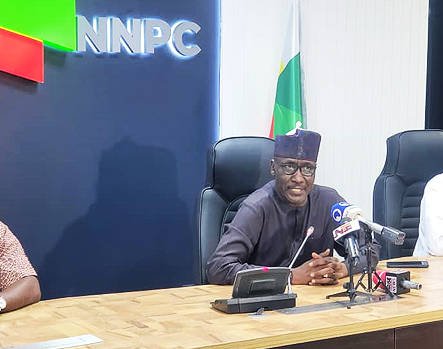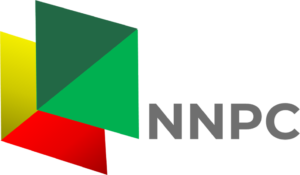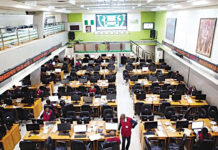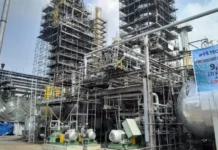The Nigerian National Petroleum Company Limited (NNPC) has reaffirmed that it has not ceased the importation of petroleum products into the country.
In a statement issued on Thursday, NNPC spokesperson Olufemi Soneye clarified comments made by the Group Chief Executive Officer (GCEO), Mele Kyari, during the Nigerian Association of Petroleum Explorationists (NAPE) conference earlier this week.
Soneye noted that while Kyari’s remarks about sourcing petroleum from local refineries were correctly quoted, they had been misinterpreted in some reports.
“The GCEO’s statement, ‘Today, NNPC does not import any product; we are only taking from domestic refineries,’ should not be construed to imply that NNPC Ltd is obligated to be the sole off-taker of any refinery or that we will no longer import fuel,” Soneye said.
He explained that NNPC prioritizes sourcing products from domestic refineries only when it is economically viable. “If local supply is cost-effective, it will be preferred, but the same principle applies to other marketers, who will also evaluate total costs when deciding whether to buy locally or import,” he added.
Soneye emphasized that NNPC’s decision to source refined petroleum from local refineries or to import is guided by economic considerations. He also noted that Kyari’s statement did not signal an end to fuel importation.
“It is also essential to note that the authority to grant import licenses resides with the Nigerian Midstream and Downstream Petroleum Regulatory Authority, as mandated by the Petroleum Industry Act (PIA). NNPC Ltd does not control more than 30 per cent of the market, as stipulated by the PIA, which aims to prevent monopolies,” Soneye explained.
He added that the law encourages a free-market system, where competition drives efficiency and cost reduction, ensuring consumers benefit. “Domestic refiners must compete on price and value, as patronage cannot be legislated in a deregulated sector,” he said.
While addressing the NAPE conference on Monday, Kyari shed light on the economic implications of local refining and its impact on foreign exchange (FX) demand.
“There are too many claimants out there saying the NNPC does not want to sell crude to refineries in naira as a form of sabotage. Far from it! It makes no difference to us because if you sell crude to the domestic refinery in naira and you buy the product in naira, it’s a net-zero gain,” Kyari said.
He further explained the potential benefits of reducing dependence on fuel imports:
“If you stop the import and sell in naira, what you are simply doing is just a substitution. It’s a settlement platform. The biggest source of FX pressure in our country is the import of PMS (Premium Motor Spirit). If you can take that under control, speculation around the naira required for domestic product supply will be eliminated.”
Kyari commended President Bola Tinubu for initiatives aimed at curbing FX speculation and inflation while stabilizing the exchange rate.
“This is a very great initiative,” Kyari stressed, “What it will do to our country is control inflation, reduce FX pressure, and stabilize the exchange rate for 50 per cent of our imports.”
Soneye also highlighted NNPC’s significant investments in Compressed Natural Gas (CNG) infrastructure, aligning with its broader commitment to energy security and affordability.
In conclusion, NNPC assured the public of its commitment to balancing economic priorities with the need for an efficient and competitive petroleum market.





